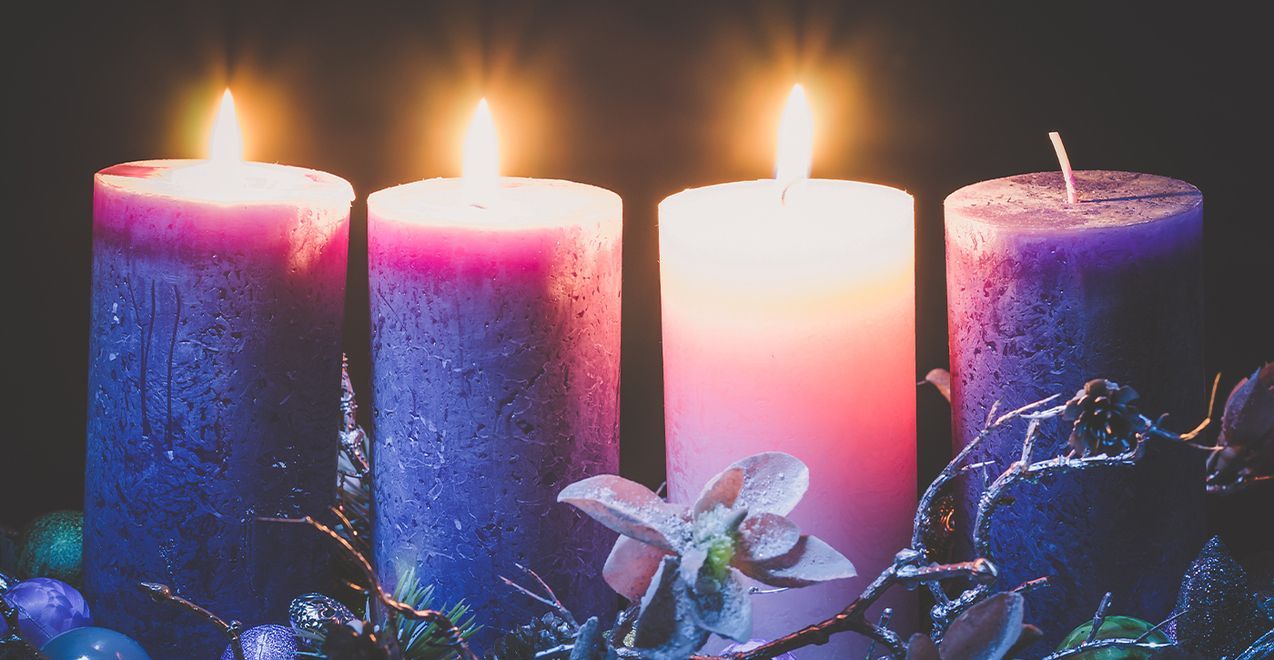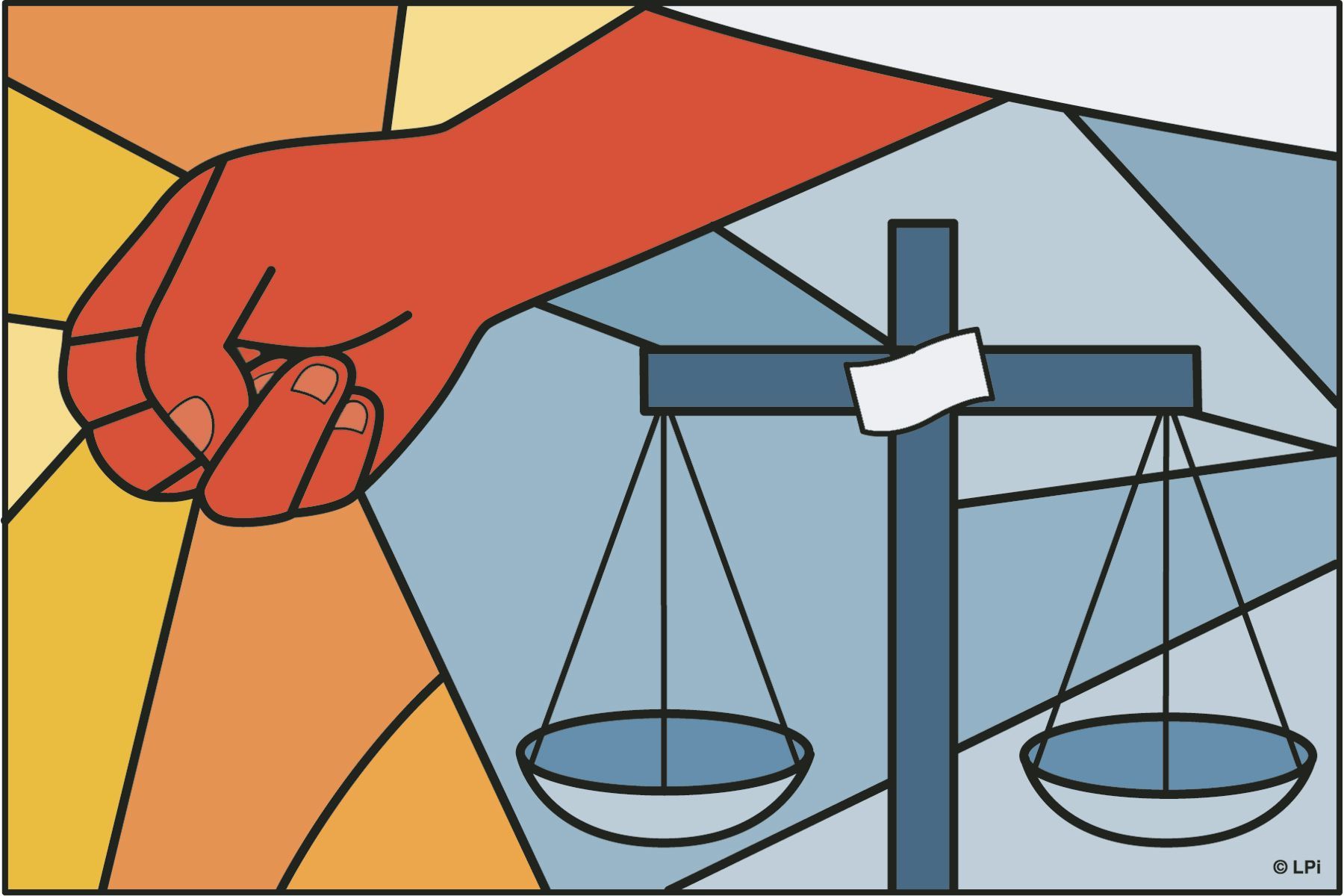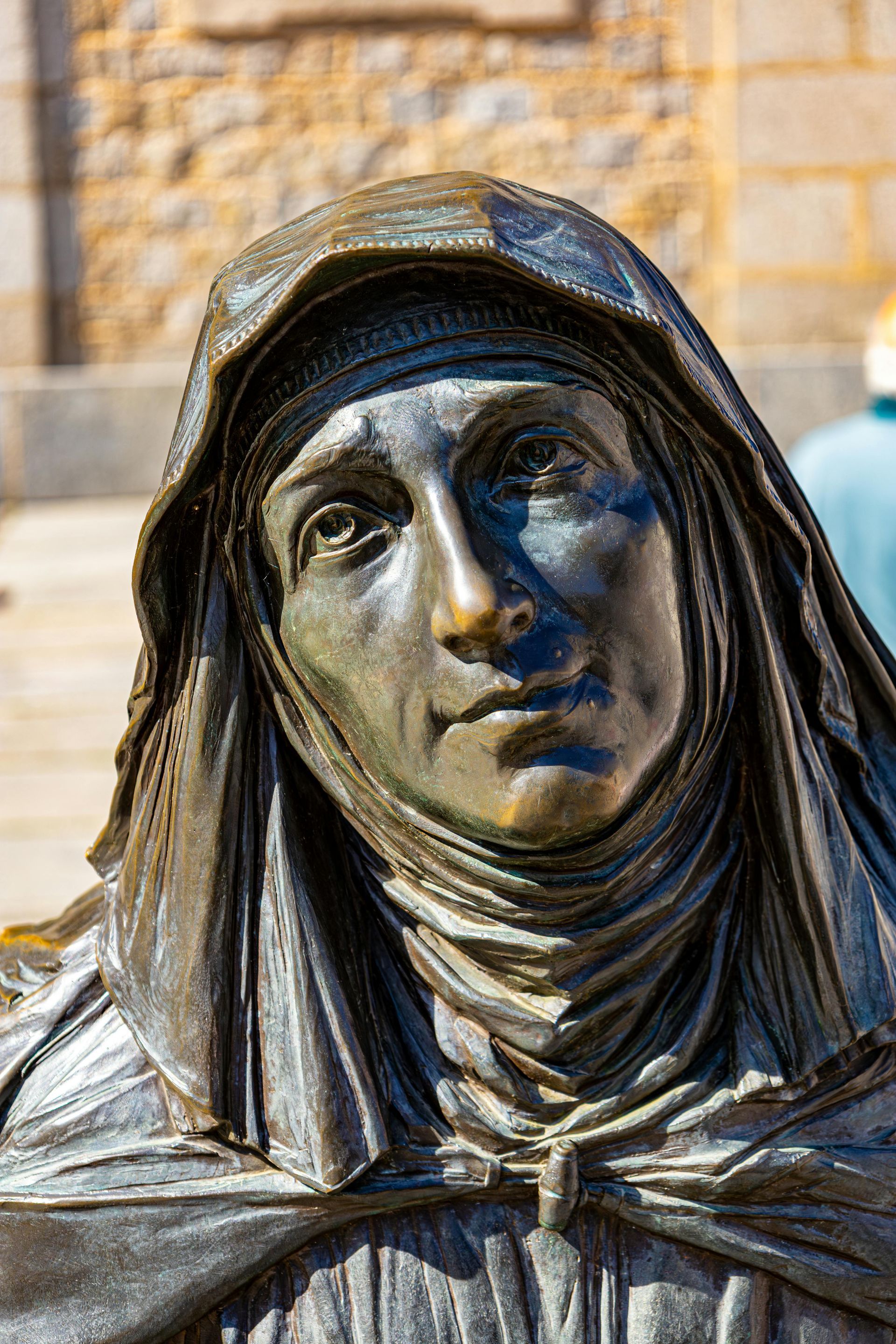3rd Sunday of Advent, Year C

Okay, so I need to address the pink elephant in the room — you all are thinking Fr. Chris and I are wearing pink vestments today! They are not pink, but technically, liturgically speaking, they are Rose. There is a church joke out there that will forever help you honor this subtle, but important distinction: these vestments are rose-colored because Jesus “rose” from the dead, he did not “pink” from the dead!
But seriously, in the Church, the liturgical colors are important; they have meaning. Today, the third Sunday of Advent, is known as Gaudete Sunday. Gaudete means “Rejoice” in Latin. We rejoice because of the imminent coming of our Lord, who literally births into our world like a flower blooming, bursting forth amidst a desert of thorns…like a rose! The rose color reminds us of this truth and that we should rejoice at the Lord’s bursting forth into our lives amidst the desert of thorns we perceive and experience in our own lives — thorns that sometimes scratch us, wound us, hurt us. Yet that beautiful, fragrant bloom comes amidst those thorns, amidst our hurt — just as our God does.
The liturgical color scheme of Advent (and Lent as well) reminds us of this truth. The purple color — technically violet — is a penitential color. I always tell the servers, “Purple ribbon for Penitential Act!” Advent, like Lent, is a penitential season. We reflect on our fallen nature, our wounded state during this season, not in an unhealthy, perseverative “I am unworthy” way, but rather in a contemplative way that leads us to awareness of how we have hurt others and ourselves and caused separation and division — a way of spiritual growth that leads us in humility to reconciliation with God and one another, drawing us into a communion of love with God and one another.
So the Church chooses the somber violet color to remind and invite us into a somber reflection of our fallen humanity, of our wounded and wounding nature, not to lead us there and leave us there, but in point of fact to lead us out of there through our salvation and redemption in Christ. Something to be hopeful for, something to look forward to, something to anticipate — to anticipate, as we do in this season of Advent, the coming of Christ our Lord! You see, violet is also a color of royalty; so the violet of Advent anticipates the coming of Christ our King!
This Rose color we choose today is a reminder of Christ's imminent arrival, his about-to-burst-forth, blooming into our lives. Fr. Hyacinth Cordell, a Dominican priest, has described the rose color as “violet approaching white.” The pure white is the light of Christ coming into the world. As Fr. Cordell writes, the Rose color anticipates the pure white of the Birth and Resurrection of Christ. A birth and resurrection we are invited to participate in over and over again, with every Baptism, with every Reconciliation, with every Eucharist, with every act of love. Indeed, what’s not to be joyful about? And the Rose color of the Advent candle, the Rose color of these vestments, proclaim that Joy!
But I know; I get it. Most of us are not capital J-O-Y-Joyful! In fact, we often struggle to be lower-case j-o-y-joyful amidst the thorny thickets of daily life that reach out and grab us, hook us, wounding us and distracting us — obfuscating our path and experience of joy. This is real. How do we find joy in the midst of this reality? First, maintain our faith and hope in Christ the Light, despite all that is going on around us, recalling that he illuminates the darkness and conquers all of the trials of this life. Secondly, enter into and become the Light of Christ. Bear the Light of Christ to each other. Reach out to one another, serve one another; give to one another and do not expect anything in return. In bearing the light of Christ to one another, we will find the Joy of Christ blossoming in our lives. Sometimes the best therapy is to go help someone else. The Gospel passage heard today reminds us of this:
Share your cloak and food with the person who has none…
Stop collecting more than what is prescribed…
Do not practice extortion or falsely accuse anyone…
Be satisfied with your wages…
Sisters and brothers, remember the simple act of reaching out to someone you know or a stranger with a simple work or deed of kindness can have the profound effect of imparting the Light of Christ, and joy, abiding joy to both them and us, in whatever darkness we may be experiencing. Never underestimate that.
A story that Saint Mother Teresa of Kolkata told reminds of this truth. She writes:
I will never forget the first time I came to Bourke [Australia] and visited with the sisters. We went to the outskirts of Bourke. There was a big reserv[ation] where all of the Aborigines were living in those little small shacks made of tin and old cardboard ... I entered one of those [little shacks] but it was only one room, and inside the room everything .... I told the man living there, “Please let me make your bed, to wash your clothes, to clean your room.” And he kept saying “I’m alright, I’m alright.” And I said to him, “But you will be more alright if you allow me to do it.” [Finally] he allowed me…
After I cleaned the room I found in the corner of the room a big lamp full of dirt and I said, “Don’t you light this lamp, such a beautiful lamp[?]. Don’t you light it?” He replied, “For whom? Months and months nobody has ever come to me. For whom will I light it?” So I said, “Won’t you light it if the Sisters come to you?” And he said “Yes.” So the sisters started going to him for only about 5 to 10 minutes a day, but they started lighting that lamp. After some time he got in the habit of lighting [the lamp]. Slowly, slowly, slowly the Sisters stopped going to him. I forgot completely about that, and after two years he sent word — “Tell Mother, my friend, the light she lit in my life is still burning.”






